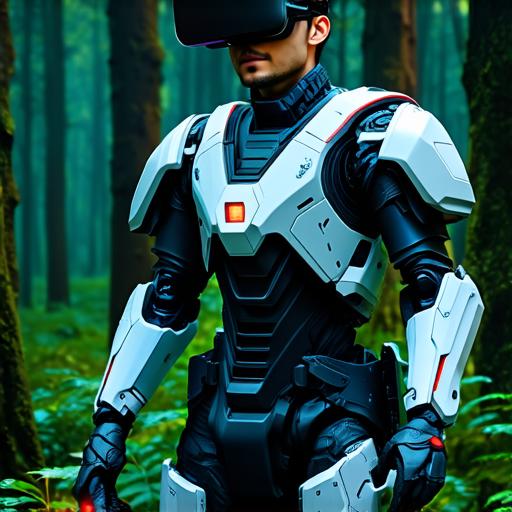Development of VR in Mobile Gaming Apps
Virtual reality (VR) technology has been around for several decades, but it is only recently that it has become accessible and affordable enough to be integrated into mobile gaming apps. Today, there are numerous mobile VR games available on app stores that use sensors and headsets to create immersive experiences.
These games can be used as a form of therapy by providing exposure to situations or environments that may trigger anxiety or fear in real life.
Example: Exposure Therapy for Anxiety Disorders
One example of the development of VR in mobile gaming apps is the use of exposure therapy for anxiety disorders. Exposure therapy involves gradually exposing individuals to a feared situation or environment in order to desensitize them and reduce their anxiety.
In mobile gaming apps, this can be achieved by creating virtual simulations of real-world environments that trigger anxiety. For example, a virtual simulation of a crowded airport could be used to expose someone with social anxiety to a high-stress situation.
Example: Exposure Therapy for PTSD
Another example of the development of VR in mobile gaming apps is the use of exposure therapy for PTSD. PTSD is a mental health condition that can arise from traumatic events, such as natural disasters, car accidents, or combat.
In mobile gaming apps, virtual reality can be used to recreate these traumatic events in a safe and controlled environment, allowing individuals with PTSD to confront their fears and anxieties in a controlled manner.
Expert Opinions on the Potential Benefits of VR in Therapy
The potential benefits of VR in therapy are numerous, according to experts in the field. Dr. David Emmelkamp, a professor of psychology at Radboud University in the Netherlands, has been conducting research on VR exposure therapy for anxiety disorders for over 20 years.
“VR exposure therapy offers a powerful tool for treating anxiety disorders,” Dr. Emmelkamp says. “It provides an immersive and engaging experience that can be tailored to the specific needs of each individual.”

In addition to anxiety disorders, VR has also been shown to be effective in treating other mental health conditions, such as depression.
Case Studies: The Effectiveness of VR in Therapy
There are numerous case studies that demonstrate the effectiveness of VR in therapy. One such study was conducted by a team of researchers at the University of California, Los Angeles (UCLA) and involved individuals with social anxiety disorder.
Participants were randomly assigned to either a traditional exposure therapy group or a VR exposure therapy group.
At the end of the study, participants in both groups showed significant reductions in anxiety levels. However, those who underwent VR exposure therapy showed greater improvements than those in the traditional therapy group.
This suggests that VR exposure therapy may be more effective than traditional exposure therapy for individuals with social anxiety disorder.
FAQs: Common Questions About VR in Therapy
What types of mental health conditions can VR be used to treat?
Virtual reality (VR) technology has been shown to be effective in treating a variety of mental health conditions, including anxiety disorders, depression, PTSD, and phobias related to medical procedures.
How does VR exposure therapy work?
VR exposure therapy involves gradually exposing individuals to a feared situation or environment in a safe and controlled manner using virtual reality technology. This can help desensitize them and reduce their anxiety.
Is VR exposure therapy effective compared to traditional exposure therapy?
Studies have shown that VR exposure therapy may be more effective than traditional exposure therapy for individuals with certain mental health conditions, such as social anxiety disorder and phobias related to medical procedures.
What are the risks associated with VR exposure therapy?
While VR exposure therapy is generally safe, there are some risks associated with it, including disorientation, motion sickness, and anxiety or panic attacks in some individuals. It is important to work with a trained therapist or clinician when undergoing VR exposure therapy.
Conclusion: The Future of VR in Therapy
Virtual reality technology has the potential to revolutionize the way we approach mental health treatment. In mobile gaming apps, VR can be used to provide immersive and engaging experiences that can help individuals overcome a variety of mental health challenges. While there is still much to learn about the effectiveness and safety of VR in therapy, the evidence suggests that it holds great promise as a tool for enhancing mental health treatment. As VR technology continues to evolve, we can expect to see even more innovative and effective uses of VR in therapy.

